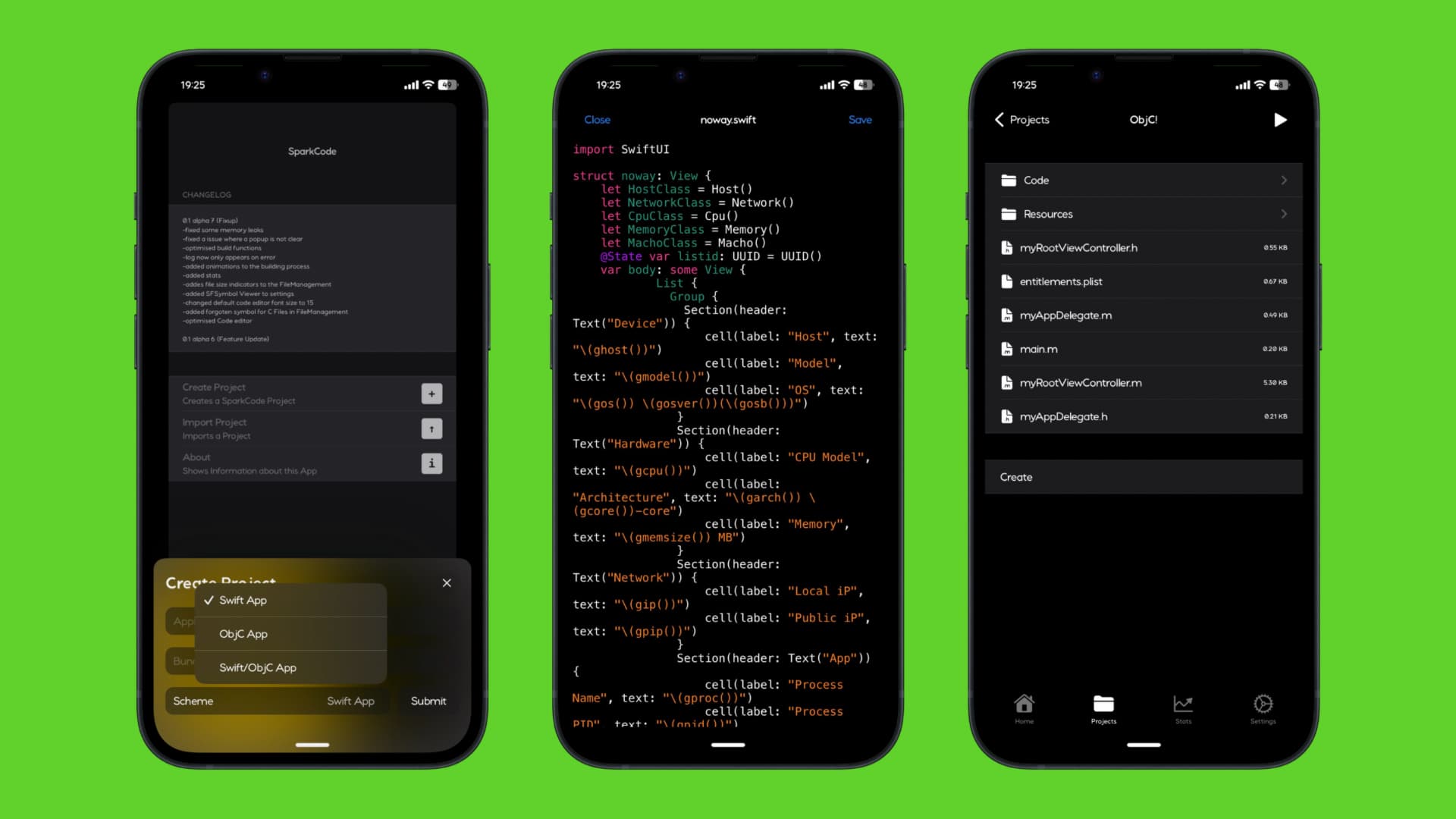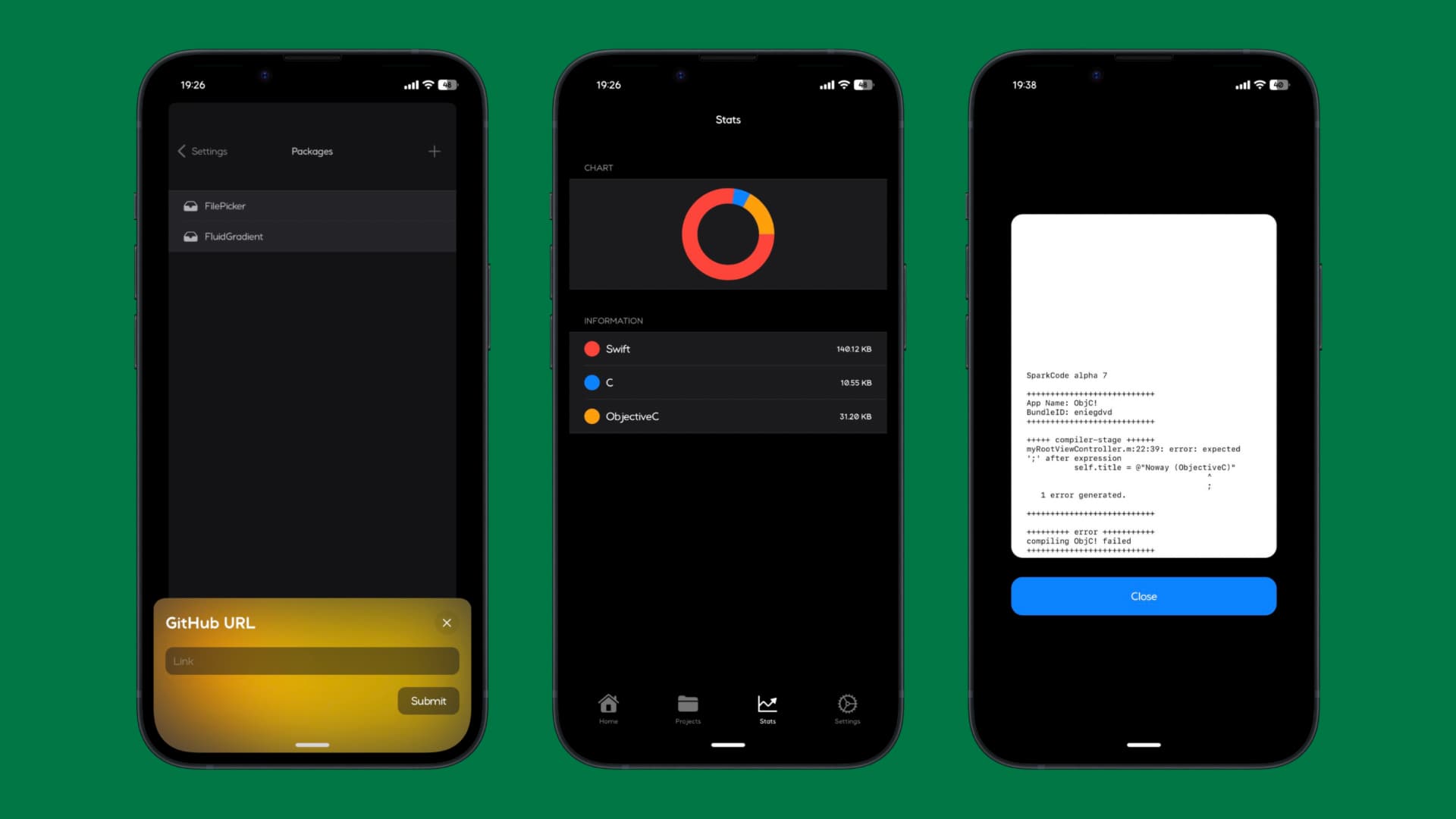Developers who often find themselves away from their computer, and by extension, Xcode, could benefit from a mobile app development platform for jailbroken devices called SparkCode by iOS developer SparkleChan.
SparkCode is a project born from strong determination by a crafty developer who wanted to make apps, but had their computer taken away by their parents. With input from developer friends like AppInstaller iOS, HAHALOSAH, and SeanIsTethered, it became the magnificent piece of mobile software it is today.
The project, originally called Swifty, started as a plain black and white text editor and rapidly evolved into a syntax-highlighting code editor with Swift compiling capabilities and the ability to fuse Swift projects with C projects using Clang. SparkCode even supports error generating to help developers learn about what’s wrong when things don’t work as planned.

According to the developer, they always wanted to have “Xcode on iOS,” but since this isn’t a real thing currently, they decided it would be a good idea to make their own Xcode-style development tool for the mobile world for developers just like them who may not have access to a computer.
Interestingly enough, SparkCode was made 100% on iPhones without a single computer, which is a testament to just how powerful mobile coding and app development can be.

SparkCode is currently in its alpha stages and has received a lot of performance and stability boosts since the first alpha build. Some of the major issues at the start were memory leaks and optimization, much of which has been or is being ironed out with the help of the developers mentioned above.
A neat thing about SparkCode is that it runs 100% natively on the iPhone without a single VM or instance used. It also offers support for various coding languages including Swift, C, C++, ObjC, and ObjC++, among others.
SparkCode sets itself apart from Swift Playgrounds by being less of a code-teaching platform designed exclusively based on Swift and more of an all-inclusive coding platform with broader support for C languages and third-party frameworks. SparkCode can also facilitate custom entitlements for apps such as disabling sandboxing, which is something that Swift Playgrounds can’t do.
If I were a mobile software developer, which I am not, I would want an app like SparkCode so that I could make modifications to my code and compile projects while away from my computer, either to pass the time in waiting rooms or to push hot-fixes when I wasn’t home. That said, I have no doubt that SparkCode will only continue to improve and rise in popularity among developers.
Those interested in giving SparkCode a try can acquire the app from the Chariz repository via their favorite package manager app on a jailbroken device.
What are your thoughts about SparkCode? Let us know in the comments section down below.